The Huge Disadvantages of Halal Certification
The obligation to obtain halal certification leads to higher economic costs and corruption. Labeling products that are non-halal would be more efficient.
maaf email atau password anda salah

The obligation to obtain halal certification leads to higher economic costs and corruption. Labeling products that are non-halal would be more efficient.

Halal certification is slow due to inadequate supporting infrastructure. It has the potential to trigger a high-cost economy.

Entrepreneurs are pressured by the mandatory halal certification regulations. The costs associated with obtaining halal labels are considered expensive, and the procedures are complicated.

Tempo’s interview with Minister of Communication and Informatics Budi Arie Setiadi about Jokowi’s campaign before the end of his tenure.
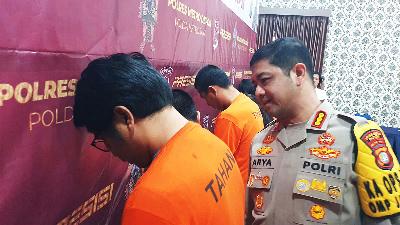
Police uncover baby trafficking syndicate operating in Java-Bali since 2023. Five babies were already sold.

The business of digital signatures and e-stamps is booming, as regulations push digital certificate providers to rake in profits.

The Ministry of Education, Culture, Research and Technology clarified the matter of the network of professor assessment teams. It is suspected that journals were engineered in addition to suspicious transactions.

Communication and Informatics Minister Budi Arie explains the cyberattack on the Temporary National Data Center. He dismisses allegations of negligence.

The complicated import regulations is causing congestion at ports. The constantly changing rules do not solve the problem.
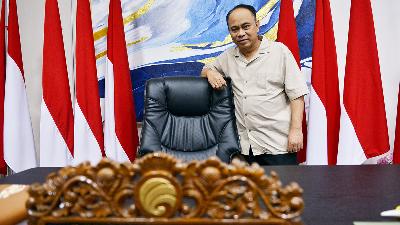
Communication and Informatics Minister Budi Arie Setiadi talks about the polemic over the planned revision of the Broadcasting Law and the Starlink Internet service.

Many Islamic boarding schools are operating without permits. There needs to be standardization of these religious educational institutions.

Bahlil Lahadalia explains the uproar over the revocation of mining permits as well as alleged extortion of money and shares in exchange for reinstatement of the permits.

All residents of Sembulang Hulu on Rempang Island are united in rejecting relocation for the Rempang Eco-City project. The relocation land is still being disputed.

The tin corruption case in Bangka Belitung implicates PT Timah officials and smelter entrepreneurs. The name of entrepreneur Robert Bonosusatya comes under the spotlight.

KPAI Chair Ai Maryati Solihah on bullying cases in educational institutions such as the recent incidents at the Binus High School and an Islamic boarding school.

In order to keep pace with artificial intelligence, we need an integral education that encompasses all the sublime qualities of humanity.
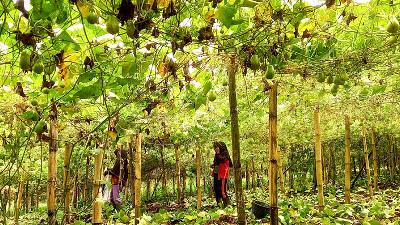
West Sumatra communities reject the certification of their customary land. Its process is not transparent and there is the motive for investment.

Clarification by Lin Che Wei’s lawyer over alleged cooking oil corruption and Pertamina’s objections to news report on cheap oil imports.

Clarifications by Latifah Al Anshori and Pertamina Director Erry Sugiharto regarding alleged corruption in the BTS project.

A letter by a high school student on how he sees national education reform.
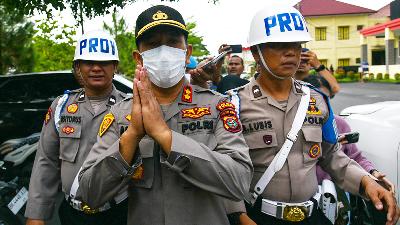
The Police have yet to solve the gratification case of Achiruddin Hasibuan. The KPK was once involved in solving the case.
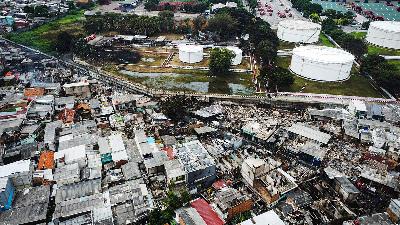
The government is divided on the relocation of the Plumpang fuel depot. It will likely be moved to reclamation land with stability issues.

Setting a solid strategy for public communication is key to gain public trust in efforts to tackle climate change.

News summary on the weakening corruption eradication, reopening of the Indosurya case, and the Constitutional Court ruling on interfaith marriage.

In its desire to solve the issue of over complex bureaucracy, Minister Nadiem Makarim’s shadow team has not addressed the essence of the problems at the education ministry.

Nadiem Makarim has outside teams attached to some directorate-general offices at the Ministry of Education, Culture, Research and Technology. Consisting of about 400 people, these shadow organizations create waves inside the ministry.

ICEL's clarification and the right of reply of Semarang State University.

Halal certificate application at the MUI is allegedly rife with bribes and extortion. Business owners are hoping for the transfer of halal certification authority from the MUI to the BPJPH to make the process easier and more transparent.

The clarification of NasDem Party Deputy General Chair Ahmad Ali about deforestation in the nickel mining area in Sulawesi.

Geo Dipa Energi’s clarification of the article "Geothermal Project Rejections".
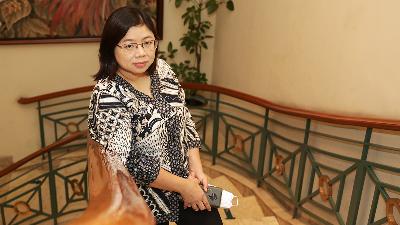
The alleged sexual harassment case at Riau University is just the tip of the sexual violence iceberg on Indonesian campuses. Will the education minister’s regulation be powerful enough to prevent sexual assaults on campuses?
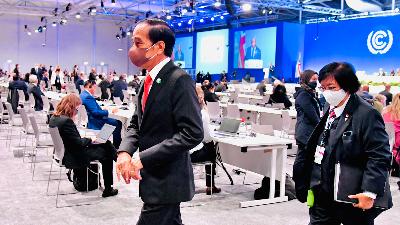
Indonesia has the timber legality verification system (SVLK). Why has it failed to prevent deforestation violations in Papua?
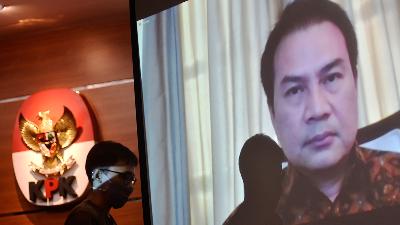
The Corruption Eradication Commission is investigating House Deputy Speaker Azis Syamsuddin in connection to several graft cases. Golkar Party officials are lobbying to extricate the Golkar politician.

Tempo readers write a view on national education and complain to the Ciomas River View developer in Bogor, West Java.

Readers complains the long verification of Whatsapp when the account is hacked.

Based on dendritic cells, the Nusantara vaccine is deemed too sophisticated for use against the Covid-19 virus. In its country of origin, the dendritic cell-based vaccine is used for personalized cancer treatment.

An infectious diseases hospital is named after Sulianti Suroso, a doctor who played a major role in the eradication of smallpox in the country. She once helped smuggle a plane during the struggle for independence.
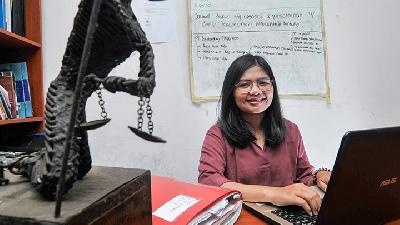
Lasma Natalia counseled the residents of Indramayu and Cirebon in their struggle against a coal-fired power plant construction project. She helps with legal education and assistance during trial.

Minister of Education and Culture Nadiem Makarim:
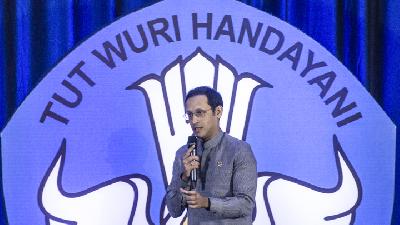
Nadiem Makarim had a plan to change the education system before he was appointed to the cabinet. He uses his experience at Gojek.

The Jakarta Regional Military Command has been vacating state-owned housing allocated for military personnel over the past five years.
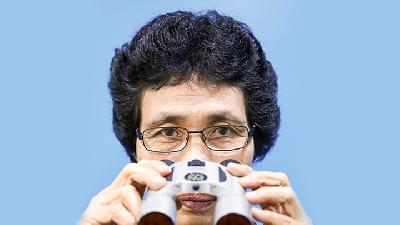
Barely two months after its establishment, the Corruption Eradication Commission (KPK) supervisory board already received a complaint against the commission leadership for alleged ethic violation.
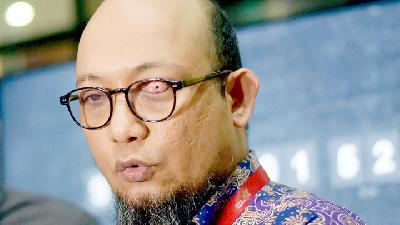
Corruption Eradication Commission (KPK) investigator, Novel Baswedan, has doubts about his alleged assailant Brig. Rahmat Kadir Mahulette’s statement, calling him a traitor.

DEAR Mr. Minister of Education, I salute your statement expressing the intention to use students’ point of view for the development of education.

The 2020 Jakarta draft budget priorities and ceiling (KUA-PPAS)—the early stage in the capital city’s budget plan—is full of irregularities. Suspicious budget allocation items are dispersed throughout spending components for consulting services, procurement, and assistance funds. Text: Hussein Abri Dongoran, Gangsar Parikesit Sources: 2016-2019 Jakarta budget, 2020 RKUA-PPAS as processed by the PSI
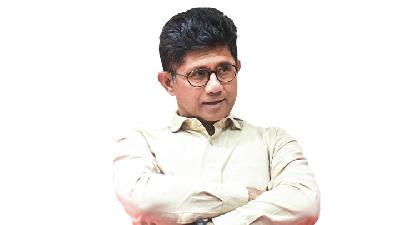
SOME issues have cropped up since Law No. 19/2019 regarding the Corruption Eradication Commission (KPK) went into effect on October 17.
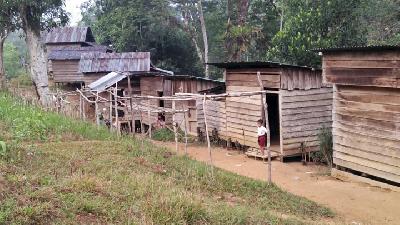
Some grade and middle schoolchildren in Sungai Kura live in wooden huts in the vicinity of their school without any parents around. They refuse to bow down to obstacles in their quest to get an education.
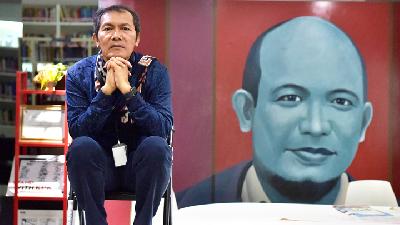
THE leadership selection process at the Corruption Eradication Commission (KPK) is under scrutiny following the selection committee’s announcement of 20 shortlisted candidates last Friday for the agency’s top seats.

WE are very pleased and grateful as our land certificate has finally been issued, after being handled through the free Comprehensive Systematic Land Registration (PTSL) program based on Presidential Instruction No. 2/2018. But a free certificate seems to be a mere figment of imagination.
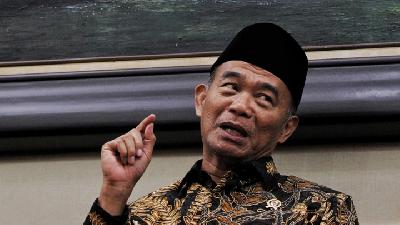
EDUCATION and Culture Minister Muhadjir Effendy saw himself becoming the bane of some parents’ life in the past month.
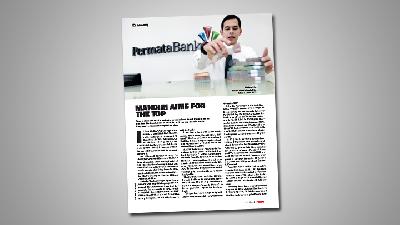
We thank you for the interview request from Tempo and the publication of Standard Chartered Bank Indonesia’s response in the article entitled Mandiri Aims For The Top carried in the April 23-29, 2019 edition.

WE wish to make a clarification concerning the article titled “From Prison to Prison”, published in the Tempo January 29-February 4, 2019, edition.

PPIM’s Clarifications of Intolerant Teachers Survey

It took four years for the Corruption Eradication Commission (KPK) to name a suspect in a case of suspect corruption involving the turning over of assets for Bank Dagang Nasional Indonesia (BDNI) to meet its financial obligation to repay Bank of Indonesia Liquidity Assistance (BLBI) funds.
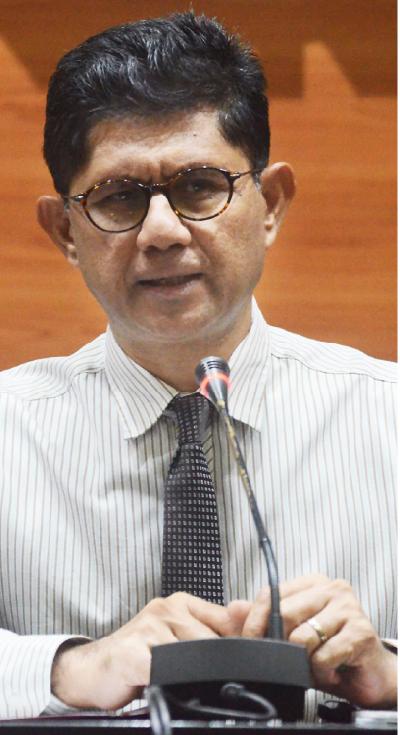
THE Corruption Eradication Commission (KPK) rejects the Criminal Code (KUHP) draft revision currently in deliberation at the House of Representatives (DPR).
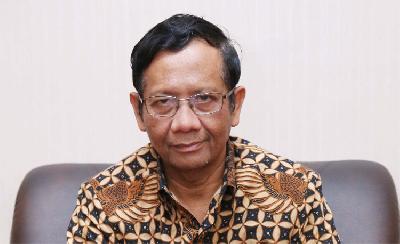
MOHAMMAD Mahfud Md. knew full well the unease of the elderly public figures in the Pancasila Ideology Education Agency (BPIP) Steering Committee.
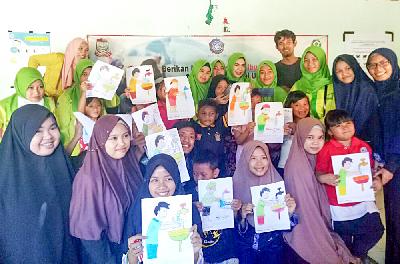
Achieving educational equity in Indonesia faces several hurdles, including limitations in infrastructure, educational facilities, and qualified instructors. These poor conditions have inspired several youths to act. Young people have opened classes in several provinces, including in the city of Makassar, South Sulawesi. In Pangkep, also in South Sulawesi, three youths pioneered the Floating School, a program meant to reach children living on small islands. Tempo English reports.

The children of Indonesian migrant workers in Sabah, Malaysia, now have the opportunity to attend school in Nunukan, North Kalimantan. Some are currently pursuing tertiary education.

The simplification of parties’ factual verifications is violating the law. The validity of election results could be in danger.

The government and the DPR rejected KPU’s proposal to perform field verification for political parties.

PLN’s plan to simplify the classification of electricity consumers has to be rejected. Efficiency is more important.

In 1978, we both started our high school education in our home city of Semarang.

The police arrested members of an alcohol smuggling syndicate that has been in operation for 20 years. A licensed import company is also suspected of involvement.

BEING reported for alleged graft- twice within a week- does not help Corruption Eradication Commission (KPK) Chairman Agus Raharjo’s mood. In early September, the anti-graft agency chief was reported to the Attorney-General’s Office (AGO), as well as the National Police’s criminal investigation unit.

I AM a director from Surepassindo and a former lecturer from Surya University. I would like to provide clarification on an article in Tempo, the July 24-30 edition, titled Education City Just a Dream.

The new regulation on zoning for registering new students has caused chaos. The constant tinkering with the education system must stop.

A great number of Indonesian children, particularly in remote areas, are deprived of education. UNICEF data shows around 2.5 million Indonesian children will only complete their primary, or at best, middle school education. Several young idealists wishing to improve the situation have established education programs for children living in isolated regions. In South Sulawesi, the Friends of Bulukumba Island, a community organization, dispatches volunteers to teach in three remote villages and has created reading rooms there. In the Bulungan regency, North Kalimantan, education volunteer, Sri Tiawati, runs the Punan Semeriot Indigenous School. Tempo English reports their stories in commemoration of International Children’s Day, June 2.

Two ISIS-linked suicide bombers attacked Kampung Melayu in east Jakarta, not long after the concert explosion at Manchester, UK and about the same time as the occupation of Marawi town by terrorists in southern Philippines. Telephone numbers written on scraps of paper scattered at the bombing site, amid receipts of ATM transfers and withdrawals, led the police to a terrorist network. Terrorists are becoming more adept at evading police and law enforcement surveillance.

Siti Badriyah was once denied her hard-earned wages as a migrant worker in Malaysia. Today, at Migrant Care she advocates for the rights of Indonesian workers overseas.

The governments of Indonesia and Germany have agreed to start the process of initiating a Memorandum of Understanding (MoU) on maritime issues and on vocational education at the Indonesia-Germany Bilateral Steering Committee (BSC) in Jakarta on April 17.

Some 13,000 duplicate names have been discovered on the voter roll, in the leadup to the Jakarta gubernatorial elections. A fertile ground for election fraud.

We must support every endeavor to improve the Indonesian press, including setting up standards by the Press Councilas regulated by Press Council Regulation No. 4/2008. The 17-point guideline, if implemented properly, will make the press function as a medium of information, education, entertainment and social control, as well as being a truly healthy commercial entity.
At the time, the Press Council enjoyed widespread support. Its standards were discussed by organizations, press people and the leaders of media organizations. The Press Councilthen headed by former Gadjah Mada University Dean Ichlasul Amalwas seen as having achieved something important. Its role was specified in Article 15 (f) of Law No. 40/1999 on the Press, i.e. to facilitate press organizations in drawing up regulations and improving the quality of journalism.

An integrated program to control flooding in Bandung, is urgently needed, not just city beautification projects.

Minister of Research, Technology and Higher Education Muhammad Nasir said it is possible there are people claiming to have a close connection with him and acting as 'brokers' in elections at several universities. The former rector of Semarang's Diponegoro University said if this is indeed happening, he does not know about it nor would he be able to prevent them from 'trading influences' with rector candidates. "That's normal, but I wish it did not happen," he told Tempo during an interview in his study on Thursday, two weeks ago.
The minister's vote, which accounts for 35 percent, is a decisive factor in elections.
Because state universities are funded by the state budget, a minister is entitled to select one of three candidates. We don't just appoint people. Their track records are important, and they must have a clear vision and mission.

Merri Utami is a victim of the drug syndicate's deadly entrapment. She escaped the death penalty, for now.

BENNY Kabur Harman never imagined what he said at a fast-breaking event at the Corruption Eradication Commission (KPK) headquarters on June 28, would be used against I Putu Sudiartana, a party colleague in the legal affairs commission at the House of Representatives (DPR). Speaking before KPK leaders and dozens of commission members, the Democrat Party politician strongly supported the KPK's many sting operations carried out over the past month. "Whoever is guilty must be caught," Benny said at the event two weeks ago.
Benny's candid comment was greeted with applause from the guests, including Putu Sudiartana. Before the event ended, DPR members posed for photos with KPK leaders. Putu asked to have his photo taken with KPK Chairman Agus Rahardjo.

The huge education budget20 percent of the total state budgetdemands a significant improvement in the quality of the national education system, something that Indonesians have been yearning for years. Now, it is up to Education and Culture Minister Anies Baswedan to respond to those demands.
The first step that Anies has started is publicizing all data on public education. The Education Balance Sheet publication contains information that until recently was not available to the public, such as the number of students in schools, the proportion of students to teachers, the number of damaged and broken-down schools, the quality of teachers based on teacher competence evaluations, the different education budgets between national and regional budgets, the budget allocation per student and the number of accredited schools.

Various traditional and cultural rituals in Indonesia can be quite expensive to carry out. Among the people of Toraja in South Sulawesi, for example, one traditional ceremony can cost billions of rupiah. Getting out of such rituals is not easy, although many communities around the country are determined to let go of certain traditional requirements that can often impoverish them, such as the villagers of Borokanda, at Ende Lio, Flores.
Director of Religion and Traditional Faith at the Education and Culture Minister, Sri Hartini, said that a simplification of rituals can be achieved through deliberations without reducing the substance of tradition. "Only the superficial aspect is simplified," she told Tempo English reporters Isma Savitri and Dahlia Rera in an interview, three weeks ago. Excerpts:

Hilmar Farid rejects the notion that his new position as director-general of culture at the education and culture department was given to him for his contribution to President Joko Widodo's campaign in 2014. Hilmar insists he had to undergo the entire recruitment procedure, beating all his rivals through a very tight selection process. Hilmar, 47, a University of Indonesia graduate, was sworn in into his new job on December 31, 2015.
He can be said to be the first echelon-one government official outside the bureaucracy to have won the job. Hilmar, who will head a corps of about 3,600 employees, must now adapt to the rhythm of his new job. It is, after all, his first time as a bureaucrat. Until now, he had always been a historian, working in the world of academics, with people's organizations and pro-democracy groups.

The positive trend on digital economics has caught the attention of President Joko Widodo. This lucrative business has been expanding in the past few years and is expected to continue growing in line with the increasing numbers of Internet users with their smart-phones. The Indonesian E-Commerce Association (idEA) recorded at least US$12 billion worth of online commerce in 2014. This has led the President to urge Communications and Information Minister Rudiantara to prepare the necessary steps to ensure Indonesia can benefit from the rapid growth of online businesses.
Rudiantara himself is optimistic that digital transcations in Indonesia can reach US$137 billion or eight to nine percent of national gross domestic product (GDP) by 2020. "We must establish the rules of the game so Indonesia can benefit from it," he said. Rudiantara shared his views on this new economic phenomenon with Tempo reporters Akbar Tri Kurniawan and Ursula Florence at his residence in Jakarta last week. Excerpts:

ON the first day that Anies Baswedan began his job as minister for culture and elementary and secondary education a year ago, he knew there would be piles of work ahead of him. Among the many issues that needed to be sorted out was the scarcity of teachers in Indonesia's remote areas. Yet, statistically, there should have been enough teachers to go around. The student-teacher ratio is around 16 to 1. "That's an excess, while in South Korea, the ratio is 30 to 1. Ideally it should be 25 to 1," said Anies, admitting that the problem in Indonesia was one of unequal distribution. In some places such as Papua, the ratio dropped significantly to 75 students for every teacher. So, in May this year, the education ministry initiated the Guru Garis Depan (Frontline Teachers ) program to address the shortage of teachers in the outer parts of the country. So far, 798 teachers have been sent out to teach at 28 regencies. Next year, the number is expected to increase to 3,500. Anies discussed the Frontline Teachers initiative with Tempo English reporters Sadika Hamid, Syari Fani and Amanda Siddharta. Excerpts:

Indah Morgan's visit to Indonesia last August was a busy one. She not only attended the Indonesian Diaspora Congress in Jakarta and a related event in Yogyakarta organized by the Javanese diaspora, she also traveled to Bandung in West Java, to Semarang in Central Java, to Banyuwangi in East Java, and to Lampung in Sumatra.
Despite the destination-filled itinerary, Indah was not on vacation. This former global coordinator of Immigration and Citizenship Taskforce of the Indonesian Diaspora Network met with former migrant workers, activists and even government officials, such as the regent of Banyuwangi. "I discussed with him the upcoming ASEAN Economic Community," said Indah, 49, at one of the side events of the Indonesian Diaspora Congress. "Indonesia sends skilled workers to other countries not just as workers, but also as envoys of tourism, culinary expertise, education, and culture. My dream is that the government will adopt more people-to-people diplomacy for Indonesia," said Indah.

THE rivers in Jakarta are in a state of severe neglect. Since Jakarta city planning is a mess and the government suffers from corruption, residents are forced to build their homes along the filthy rivers. As a result, the rivers are becoming narrower and shallower, and are buckling under the load of garbage.
River dwellers understand that every rainy season the floods will come. The Jakarta government has built high-rise buildings for them to move into, thus making it possible pursue river clean-up and normalization. It was only during the governorship of current Jakarta Governor Basuki Tjahaja Purnama that the relocation of these riverside inhabitants succeeded. Three weeks ago, Kampung Pulo residents were relocated to Jatinegara Barat high rises.

Differently-abled children need special handling so they can become self-reliant. And they should never be excluded. "Their feelings should be considered," said Ignatius Dharta Ranu Wijaya, better known as Dharta. As a consultant on the Education and Behavior of Children with Special Needs, Dharta works at the Child Neuro Behavior Development Center of Melinda Hospital in Bandung, West Java.
He noted that one of the major problems of the diffabledaside from the physical factoris an ill-prepared educational system and an erroneous pattern of nurturing. Dharta, 43, began his career as a behavioral therapist for children with special needs in 1998. Today his expertise is in great demand by a number of well-known non-government organizations (NGOs), schools and universities.

When the Organization for Economic Cooperation and Development (OECD) last May ranked Singapore as the nation with the top education system, based on mathematics and science test scores of 15-year-old studentsoutperforming the UK, US, Japan And Australiathe strategy behind Singapore's success became the focus of world attention. Just 60 years ago, this island-state of 3.5 million people had one of the highest levels of illiteracy.
Tempo interviewed Singaporeean Education Minister Heng Swee Keat, 54, in early June, to find out more. "I might not quite agree with the results (of the tests)," he said. He said there were many ways to measure success. "I tell my colleagues, we must never be complacent, never be arrogant. There are many things that we continue to learn from people around the world," Heng said.

There are many obstacles to becoming a research university, among them funding, which is not much and the fact that research has yet to become a culture of higher learning in this nation. To look into this subject further, Tempo reporters Erwin Zachri and Gabriel Titiyoga spoke with Research Technology and Higher Education Minister, Mohamad Nasir at his office last week.

THE existence of a fake letter appointing the director-general of immigration shows that there is something seriously amiss at the heart of President Joko Widodo's administration. A presidential decision (Keppres) is a document that represents the policy of the president as head of state and head of government. The falsification of a Keppres is a serious offense. It gets even worse if it turns out that an insider was involved in this illegal act.

Dozens of wooden poles painted in red and white mark plots of land along the shoreline at the edge of Kalen Kalong hamlet in Sumber Jaya village. Similar poles can be seen along both sides of the road some three kilometers from the coast on the way to ta fishing village in Tempuran district, Karawang regency, West Java. "These lands are already taken," Karto, a local, said last Wednesday, pointing toward the location for the planned Cilamaya Port.

PHOTOGRAPHS of elementary school students hang on the walls of the Ki Hajar Dewantara Building of the Elementary and Secondary Education and Culture Ministry in Jakarta. Most of them show children in remote areas, wearing shabby uniforms but genuine smiles on their faces. The photographs were put up at the request of the new minister, Anies Baswedan, who asked that they be hung everywhere, including in all meeting rooms. "So that when we meet, their faces will remind us that we work for them," said Anies, in his office last week.
Barely two months into his new assignment, Anies has created a buzz in Indonesia's education sector. He changed the function of national school examinations from determining a student's passing grade to merely a tool to measure the quality of education. A recent bombshell was when Anies halted the Curriculum 2013 and reverted to the Curriculum 2006 on December 6. He rejected the new curriculum because he noticed that teachers and schools were not ready to use it. "It's like being told to suddenly switch to an iPhone when you're used to using BlackBerry," Anies explained.

Forever Curious
Munir was known as a smart student despite his modest and at times, even below-average academic record. But he made up for any shortcomings with his inexhaustible curiosity and a passion to help the downtrodden. Even his choice of life-partner, Suciwati, was someone equally committed to his causes. Until his untimely death, Munir dedicated his life to fighting injustice and intolerance.
BORN to a modest merchant family, each day Munir would assist his elder brother Muhfid to sell cloth, shoes and slippers at the local market, Pasar Batu. He started helping out after his father died when he was still a sixth grader. As such, Munir had to earn extra money to pay his way through school and until he completed his law studies at Brawijaya University.
Munir's primary-school friend, Saiful Amin, recalled how they loved to swim in the Brantas River. He was thin and small in stature, often an object of ridicule, but he always fought back. He made friends easily and was always willing to give a helping hand. "He was a caring person and often showed empathy," Saiful said.
But it was his rebellious attitude, evident from a very young age, that was to define Munir's character and fate. "He was so stubborn," recalled Farida, 60, a teacher of Muhammadiyah elementary school 4 at Batu, Malang, where Munir studied. It was a trait to be found at home, where he was the only one from among seven children of Said Thalib and Djamilah who dared to question his parents. According to his brother Muhfid, Munir would always demand a logical explanation if his request was turned down. "If mother refused to give in to something without much thought, he was sure to protest," recalled Muhfid. He admitted, however, that Munir's arguments often made sense, so his brothers would always support him.

A garbage monitoring social media application won the College Students Category of the 2014 Indonesia Information and Communication Technology Award. The application, Montrash, was built by the Turangga Team of Telkom University, Bandung.
Montrash, short for 'monitoring trash,' was created by four computer science students from Telkom University's Electrical Engineering Faculty. They are Restu Isjaka Purwandana, Raden Rogers, Shifa M.A and Yuniar Pristian Chandra. "This is a mobile application that uses crowdsourcing to map the spread of illegal garbage dumps," Restu said.

THE action by Communications and Information Minister Tifatul Sembiring in signing Ministerial Regulation No. 30/2014 on the reorganization of the 800 megahertz frequency band should be strongly opposed. Besides not being accountable to stakeholders, including the public, this important decision was taken just as he is approaching the end of his term of office.
The new regulation signed during 'injury time' is a reorganization of the 800 megahertz frequency band that has been used by code division multiple access (CDMA) telecommunication operators. The operators using this frequency want to switch to the global system for mobile (GSM) system because the market for CDMA is shrinking, while demand for GSM is rising sharply with the appearance of third generation telecommunication services.

Born of a rich family gone bankrupt, Yap Thiam Hien grew up under the loving care of his Japanese foster mother. His education and language capacity afforded him rare opportunities, like studying in the Netherlands and his strong character was always linked to Christian principles he obtained during his youth.

There are 250 tribes in West Papua, and all are familiar with the traditional noken bag, used for carrying produce, celebrating important events, domesticating pigs, and more.

In Sikka Regency, East Nusa Tenggara Province, village midwives are leading a drive to gather childbirth data for birth certificates.

Five Catholic schools are thought to be violating the national education system legislation. The mayor of Blitar has postponed making a decision.

The Constitutional Court stated that the existence of pilot international-standard schools and international-standard schools is not in line with the Constitution, and must be stopped. The education minister asked the schools to continue operating until the end of the school year in June.

The debate over the simplification of the elementary school curriculum is a good sign. But instead of a cut-and-paste system, there must also be improvements to teaching standards.

The allocation of 40 million standard cubic feet of gas from the Gajah Baru field in the Natuna Sea for the Muara Bekasi plant remains a disputed matter. State electricity firm PLN stands to lose burning diesel fuel worth Rp5.5 billion each day for 18 months.

The Communications Ministry sets the price for SMS interconnections; to reduce free promotions and junk text messages.
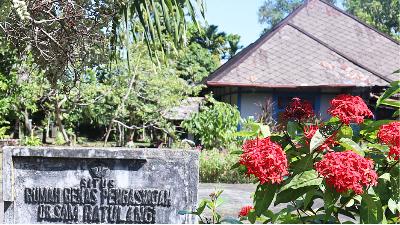
Silas Papare and some residents in Serui founded the Irian Indonesian Independence Party. They were assisted by Sam Ratulangi.

Silas Papare helped the Allies fight against the Japanese in West Irian. He supported Indonesian independence because of conflict with the Netherlands.

Silas Papare was close to Sukarno. He refused to participate in the 1969 referendum because he was once arrested by the military.

Top management of Bank Mayapada allegedly obtained kickbacks from customer credit disbursements. The OJK was lax in their oversight of this bank owned by a member of the Presidential Advisory Council.

Learning from Japan. When development is planned, the government discusses it with the public until an agreement is achieved.

On moral lessons from Japan and the USA, and how the BPK should prevent state budget corruption.

The Bukalapak initial public offering (IPO) is the beginning of a list of digital unicorns entering Indonesian Stock Exchange. Retail investors and public fund managers need to be cautious.

Bukalapak is breaking new record at the Indonesian Stock Exchange. Speculations on the potential big investors remain.

Delving further into the literary works of Nobel laureates from Japan like Kawabata and Yukio Mishima, we can notice the very paternalistic puritan morals of Asian nations.

I WAS a participant with the highest rating in the #maudigaransimurah program of Bukalapak carried out on October 7-December 31, 2019.
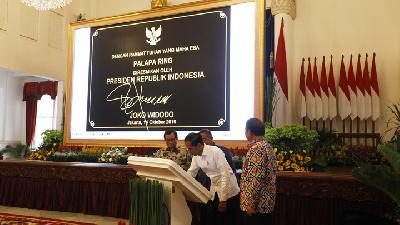
The promise of fast and cheap Internet access in outer regions through the Palapa Ring has yet to materialize. The stumbling block is connecting the Internet to the optic fibre cable network.
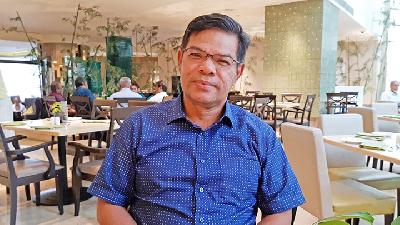
Malaysia's political crisis began when Mohamed Azmin Ali and a number of parliament members from Pakatan Harapan (The Alliance of Hope) met with opposition parties.

With 'stone' as the common thread, Babad Batu is a cerebral journey on a road with many side roads. Sapardis latest collection is encyclopedic, primordial and political.

To some conservative Japanese reactionaries, writer Aiko Kurasawa is unpatriotic because she wrote a book on the cruelty of the Japanese military in Javanese villages. She has been branded by some as a communist. Kurasawa's interest in Indonesia began a long time ago, when she first read about Sukarno, whom she regards as a hero of the Asia-African movement. Not surprisingly, when the 1965 events exploded, she was devastated upon reading about the resulting fall of Sukarno. "I was shocked," said Kurasawa, who was recently interviewed at her home in south Jakarta.

Regarded as the Golden Age of Indonesian history, the vast maritime empire of Majapahit reached its apogee in the 14th century. Though it thrived for only 300 years (late 13th century to early 16th century), Majapahit was Indonesia's greatest state, the last in a long line of Buddhist and Hindu Javanese kingdoms. Islam had ostensibly erased Indian cultural traditions by the 16th century, yet Buddhist-Hindu traces can still be seen in the rituals and architecture of the kraton courts of Bali and central Java, and innumerable motifs and styles of the earlier cultures are found everywhere in Indonesian art.

For the second time this year, and against his doctor's advice, senior economist Gustav F. Papanek from Boston University returned to Indonesia. With a new government in place, this 87-year-old former advisor to the 'Berkeley Mafia'influential economists of the New Order erafelt the need to address a very urgent problem: The declining income of the poor, which as he noted "is immoral and also politically undesirable; therefore, it is important to take substantial steps to increase their income. The only way you can do that is by providing industrial jobs."
Although he was unable to meet President Joko Widodo, he managed to meet Sofyan Djalil, Economic Coordinating Minister; General Moeldoko, Armed Forces Chief; and ChatibBasri, former Finance Minister, and gave talks in three universities and Bank Mandiri as well as numerous interviews with the media. In a packed schedule, averaging two presentations a day, he found ways to push his ideas.

The banking business is in a flux as a result of the war of interest rates among banks. But the owner of the Mayapada Group, Dato Sri Tahir, is optimistic that the banking sector in Indonesia will continue to grow. "Growth depends on situations and conditions," Tahir told Tempo, two weeks ago. Having travelled all over the world, Tahir concluded that the best investment opportunities are still found in Indonesia.
He believes that investment opportunities in Indonesia are still better and that includes the business prospects of his Mayapada Group. He told Tempo reporter Christine Munthe in an interview that he would never sell Mayapada for whatever price. Excerpts:

Slum dwellings can be found throughout the Sunda Kelapa zone. Developing the area will require a major clean up.

Early in March, Agus Aris Munandar, an archeology professor at the University of Indonesia, presented a controversial lecture: there were no canals in Majapahit. He refuted all theories that Majapahit was a canal city, including the intensive research by senior archeologist Mundardjito. How did Mundardjito react?

Lured by bombastic ads on local and national television, thousands of cancer patients have become victims of the Harapan Baru traditional Chinese clinics, particularly its branch in Medan, North Sumatra. Harapan Baru guarantees cures with its herbal treatment while infusing patients intravenously with chemotherapy, an illegal procedure given that the traditional healers are not licensed to practice modern medicine. Steroids about 200 times the strength of morphine are another 'magical' cure. This medical and ethical violation has been going on for years, yet the regulatory seem to turn a blind eye.

A number of researchers have been to Holland in search of traces of the Sundanese dangding poetry of Hasan Mustapa, trying to find original manuscripts of this little known literary figure.

The burial ritual for Granny Kapa involved 400 residents, a month’s preparation, and costs around Rp1 billion.

He was known to be close to Japan but he was smart enough to lessen their pressure and to usher in the proclamation of Indonesia’s independence.

Japan’s Democratic Party won a landslide victory in the recent general election. But the public still doubts Yukio Hatoyama’s capability as the new Prime Minister.

This travel account penned by 21 Indonesian architects in Japan is not merely concerned with buildings.

There have been increasing demands to implement one of the key elements of the 1998 Reforms. Indeed, a number of things have been achieved, like cutting down the military’s political rights in parliament during the 2004 General Elections. Law No. 34/2004 on the TNI says the TNI businesses must be cleaned up. After the data collection team—implemented by Secretary of State-Owned Enterprises, Said Didu—verification will be carried out by the National Team on TNI Assets Takeover, led by Erry Riyana Harjapamekas.

For years, a timber mafia worked in unison to plunder the forests of Ketapang, West Kalimantan. They consist of dealers, loggers, members of the Forestry Office, police officers, officials of the Forestry Department and authorities from the local regency government. The Joint Team of National Police Headquarters and the Forestry Department estimates that state losses amount to Rp32.4 trillion annually. This is equivalent to 26 times the 2008 regional budget for West Kalimantan province.
Three weeks ago, the Joint Team was able to dismantle the mafia’s timber network in Ketapang. Among those arrested were the head of the Ketapang Office of Forestry, the Chief of the Ketapang District Police, and a candidate for the office of regent. Tempo reports from Ketapang.

The crewmen of a Japanese ship abducted in the Malacca Strait were released. Tokyo has urged that security in the area be increased.

One Japanese cosmetic company holds 24 patents over Indonesian indigenous plants. Must we now pay taxes on the spices in our own backyards?
Independent journalism needs public support. By subscribing to Tempo, you will contribute to our ongoing efforts to produce accurate, in-depth and reliable information. We believe that you and everyone else can make all the right decisions if you receive correct and complete information. For this reason, since its establishment on March 6, 1971, Tempo has been and will always be committed to hard-hitting investigative journalism. For the public and the Republic.